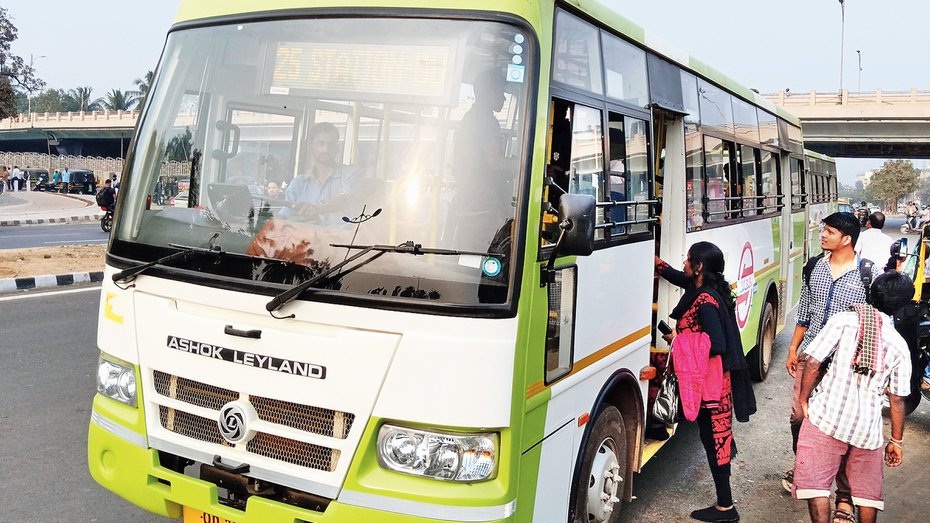As the city observes rapid urbanisation, the demand for a robust public transport system has been the need of the hour. However, experts believe that a Private-Public Partnership (PPP) in this aspect is a recipe for disaster.
The Bhubaneswar Puri Transport Corporation Limited (BPTCL)—the ferrying service between the Capital city and Puri— gradually transformed to Capital Regional Urban Transport (CRUT). However, erstwhile BPTCL which was under PPP reported heavy revenue losses before it was remodeled.
An RTI reply filed by Pradeep Pradhan, an RTI activist here, stated that BPTCL, a state government undertaking, had invested Rs 185 crores in procurement of 185 buses between 2010 and 2014. However, within seven years of its service, the BPTCL was able to generate only `8.5 crore revenue and 180 of its buses now lie defunct in Bhubaneswar and Cuttack.
“Private-Public Partnership (PPP) is a buzzword in the circles of state administration in an attempt to engage private players for service delivery to the people. While in some cases PPP model is successful in many cases it is not. The PPP in BPTCL was a failure because private players were keen on making profits rather than providing service. For a budding urban transport as in Bhubaneswar, PPP is not safe for its growth,” said
Shubendru Mallick, a former urban planner.
Mo Bus revenue highest in country: CRUT
Although experts are skeptical about the success of Mo Bus under PPP model, the transportation body has claimed that its services are getting huge response from people and its revenue is highest compared to any public transport body in India.
Recently, Mo Bus completed one year in the Capital city. On the occasion of celebration of its anniversary year, CRUT’s Managing Director, Arun Bothra, said that the daily revenue of Mo Bus has grown from Rs 5 lakh in May to Rs 12 lakh till now.
“No public transport system is profitable in any part of India. But we are optimistic about increasing the revenue to almost Rs 16-17 lakh by 2020,” he stated. Sources at CRUT say that the government spends about Rs 20- 22 lakh per month on operation of Mo Buses.
Evidently, the losses suffered by the public transport organization look huge. However, as compared to its predecessor CRUT is now reportedly following the Gross Cost Model (GCM) where operation of route/routes is contracted and a private body is responsible for procurement and maintenance of the buses. Meanwhile, route planning, revenue collection and scheduling are under public body.
“Urban transport was not a dedicated area until the advent of Smart City initiative. We gave up the former Net Cost Model (NCM) to GCM were revenue earning was burdened on private body. Under GCM we focused on rendering services making revenue collection our responsibility,” state CRUT’s General Manager, Dipti Mahapatro. While revenue making is not given to the private bodies they, however, are paid on per kilometer basis.
The rates range between Rs 40 to Rs 60 depending on types of buses.
Aviral Mishra, OP
